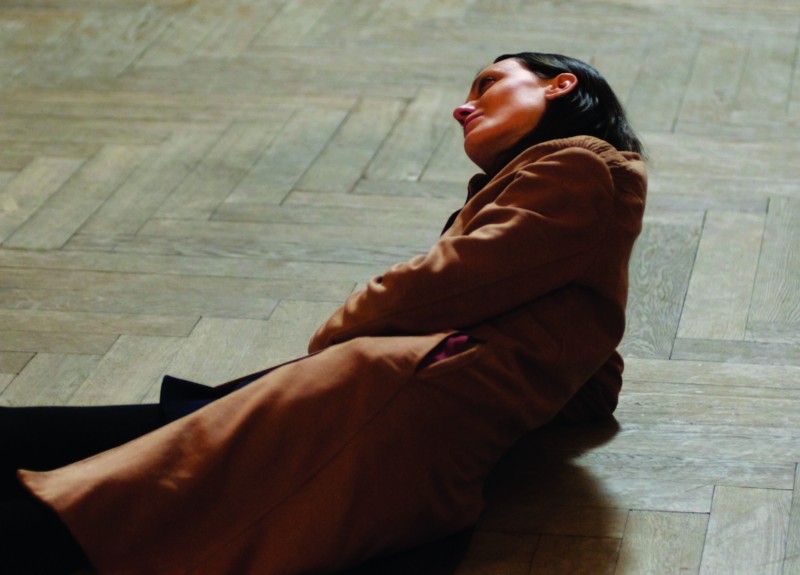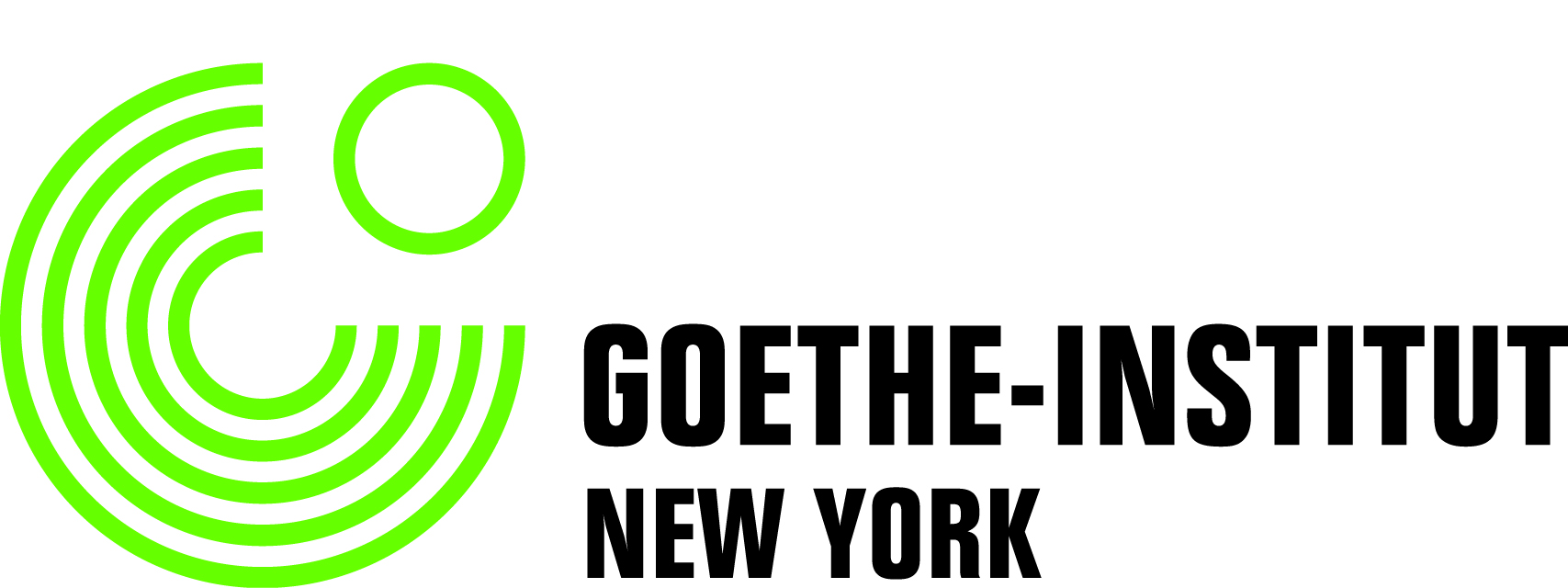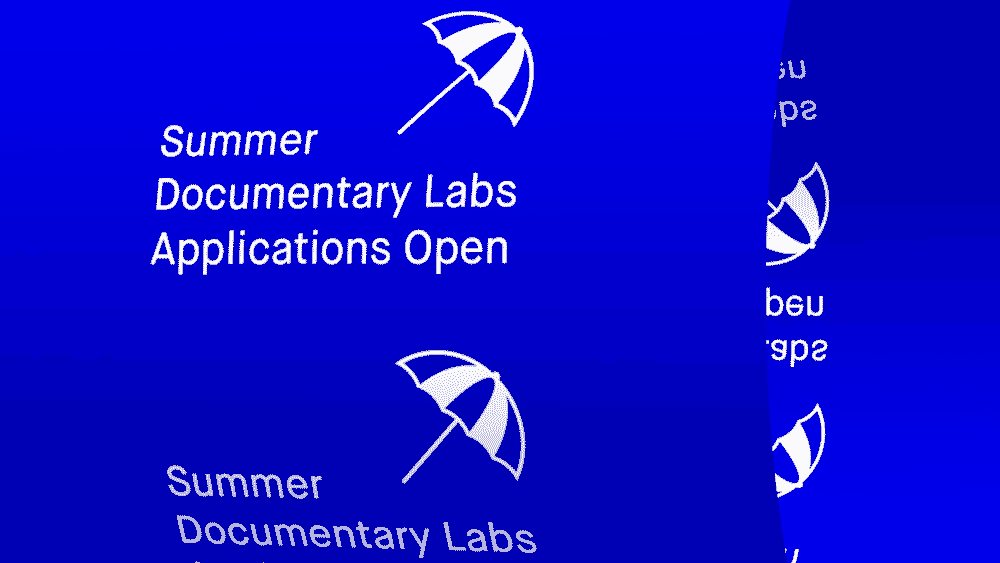The Berlinale’s Forum Expanded program provides a space for works that negotiate cinematic boundaries. The shape and format of the Forum Expanded remains in flux, thereby reflecting the themes and movements specific to each year.
In these pieces, form, instead of following function, takes its cue from contemporary discussion and joins in the conversation. Similarly, the films in this program present ways in which language redefines relationships by rearranging words and the bodies that they articulate. These works address telenovelic tension and the seductiveness of its language that can’t seize the bodies it describes. The language of a telenovela keeps its characters under control by creating them. Sometimes, however, bodies punch back and form a (cinematic) language.
Program length: 77 minutes
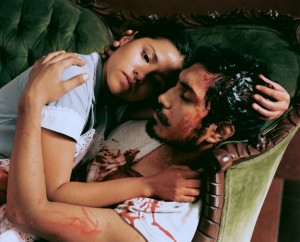 soy mi madreby Phil CollinsMexico, 2008, 28 minutes, digital projection
soy mi madreby Phil CollinsMexico, 2008, 28 minutes, digital projection
Collins immerses himself into the world of telenovela, creating a hybrid form out of its narrative and aesthetic structures. The piece was conceived as part of a residency in Aspen, Colorado, whose Latino community Collins pays tribute to with this ‘site specific’ work and later shot in Mexico City with a cast including some of Mexico’s best known actresses. Revolving around the ideas of role-playing and performance, masks and mirrors, symbols and rituals, soy mi madre posits social roles as volatile, defined by their inherent potential for theatricality and violence.
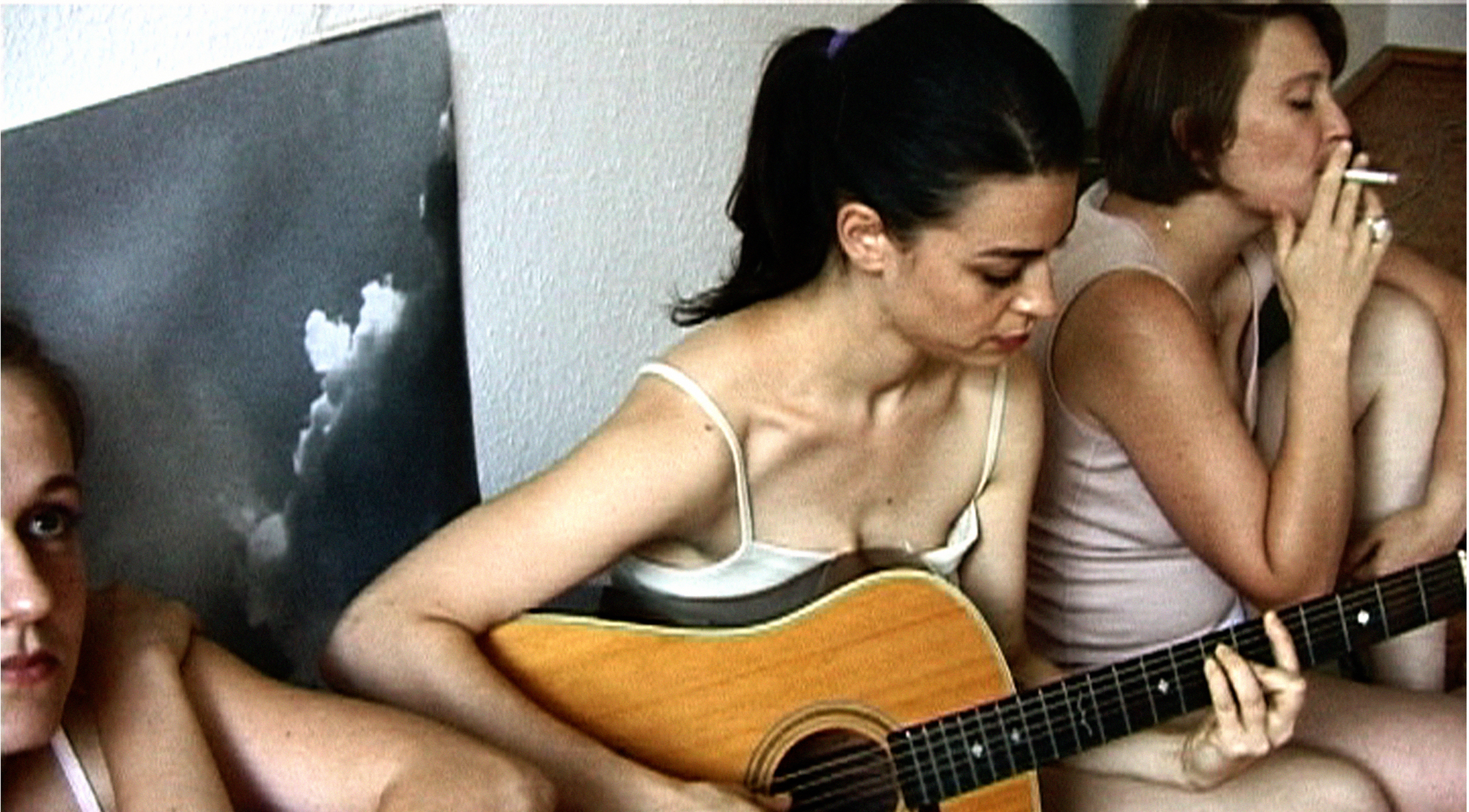 Der Spiegelby Keren CytterGermany, 2007, 4 minutes, digital projection
Der Spiegelby Keren CytterGermany, 2007, 4 minutes, digital projection
The viewer is confronted with the naked body of the 42-year-old protagonist (played by Susanne Sachsse), who sees herself as a 16-year-old that the man she wants must love. Her reflection in the mirror shatters this self-image. Cytter comments on the state of contemporary society. This critique is expressed through the remarks of the choir – representing the voice of the masses – during the protagonist’s profession of her love: “Subtitles: and young bodies are better than an old woman.” As in Cytter’s previous films, Der Spiegel ends cruelly.
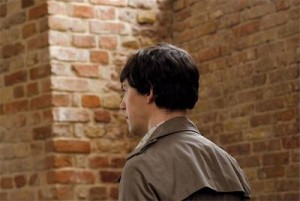 Cet Hommeby Markus RuffGermany, 2011, 45 minutes, digital projection
Cet Hommeby Markus RuffGermany, 2011, 45 minutes, digital projection
A slight trembling, the muscles of the throat, the shoulders, the torso sways back and forth, a shrugging of the shoulders, a strained swallowing. An actress, an actor, who have taken on the task of measuring and relating, shot from behind, from the side. The measurements: the space between camera and performance, between narration and event, between image and sound, the sound of the space. The relations: to one another, to the space, to the camera, and time and again to the text. Are they telling their story, is what’s happening all in the description, or does the text itself describe a visual narrative which then happens elsewhere? A film of speaking bodies, antagonisms, intonations, rehearsals. Always accompanied by the camera’s serenity and precision and the audible resonances of the space.
Markus Ruff, born 1977 in Stuttgart, lives and works in Berlin. Between 2002 and 2010 he studied at the University of the Arts in Berlin. Films: Aus der Leere (2005), Le spoglie dell’oggi – Die Überreste vom Heute (2006), Erika (2008).
 Phil Collins, 39, was born in Runcorn, England and now lives and works in Berlin. Recent solo exhibitions and projects include: Carnegie Museum of Art, Pittsburgh (2007), Tate Britain, London (2006-7), and San Francisco Museum of Modern Art (2006). Recent group exhibitions include Acting Out: Social Experiments in Video, Institute of Contemporary Art, Boston (2009) and Turner Prize, Tate Britain, London (2006).
Phil Collins, 39, was born in Runcorn, England and now lives and works in Berlin. Recent solo exhibitions and projects include: Carnegie Museum of Art, Pittsburgh (2007), Tate Britain, London (2006-7), and San Francisco Museum of Modern Art (2006). Recent group exhibitions include Acting Out: Social Experiments in Video, Institute of Contemporary Art, Boston (2009) and Turner Prize, Tate Britain, London (2006).
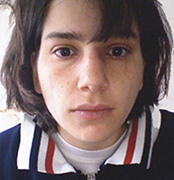 Keren Cytter, born 1977 in Tel Aviv, lives and works in Berlin. She works in a wide range of media, including film and video, sound, music, performance and installations. She is the founder of the dance company D.I.E. NOW, for which she composes the music. As an author, Cytter has published several novels and books of poetry.
Keren Cytter, born 1977 in Tel Aviv, lives and works in Berlin. She works in a wide range of media, including film and video, sound, music, performance and installations. She is the founder of the dance company D.I.E. NOW, for which she composes the music. As an author, Cytter has published several novels and books of poetry.
Stefanie Schulte Strathaus is a film and video curator who lives and works in Berlin. She is Co-Director of Arsenal – Institute for Film and Video Art (with Milena Gregor and Birgit Kohler) and Member of the selection committee of the Berlinale Forum and founding director of Forum Expanded, a new section of the Berlin International Film Festival which negotiates the boundaries of cinema. Her curatorial work comprises numerous film programs, retrospectives and exhibitions, among them Michael Snow, Guy Maddin, Heinz Emigholz, Birgit Hein, Ulrike Ottinger, Stephen Dwoskin and many others. She recently co-curated (with Susanne Sachsse and Marc Siegel) LIVE FILM! JACK SMITH! Five Flaming Days in A Rented World (October 2009).
Her texts have been published in Frauen und Film, The Moving Image, Texte zur Kunst, Ästhetik & Kommunikation, Schriftenreihe Kinemathek as well as in various festival and exhibition catalogues. She is the editor of: Kinemathekheft Nr. 93: Germaine Dulac (with Sabine Nessel and Heide Schlüpmann), Berlin 2002; “The Memo Book. Films, Videos and Installations by Matthias Müller”, Berlin: Vorwerk 8, 2005; “The Primal Scene: Christine Noll Brinckmann. Films and Texts”, Berlin: arsenal edition, 2008; “Who says concrete doesn’t burn, have you tried? West Berlin Film in the ’80s” (with Florian Wüst), Berlin: arsenal edition, 2008.
The Forum Expanded launched in 2006 as an offshoot of The Forum at the Berlinale, presents film, video, installation and performance works on various themes in locations around Berlin.
The Goethe-Institut is the Federal Republic of Germany’s cultural institution operational worldwide. We promote the study of German abroad and encourage international cultural exchange. We also foster knowledge about Germany by providing information on its culture, society and politics.With our network of Goethe-Instituts, Goethe Centres, cultural societies, reading rooms and exam and language learning centres we have played a central role in the cultural and educational policies of Germany for over 50 years.
PRESENTED WITH:


